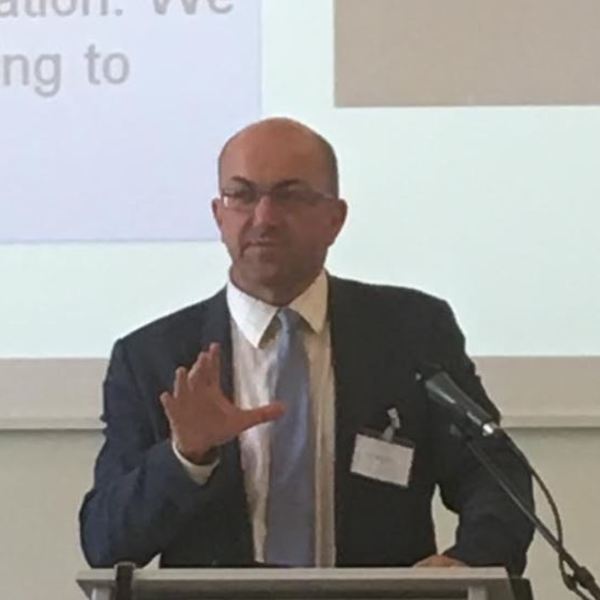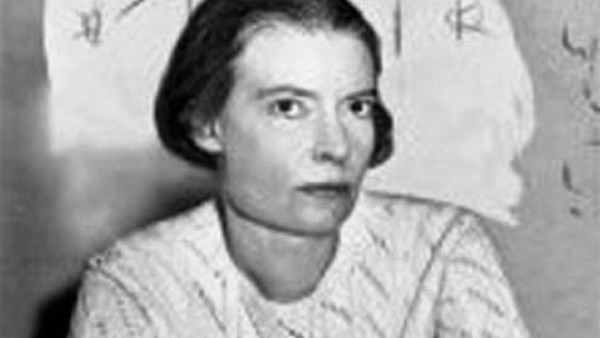The notion of authority in the Church is contested. In the current cultural climate any appeal to authority in both the civil and the religious sphere needs justifying, not proclaiming. The Catholic scholar, rightly, claims the academic freedom to research without hindrance: is it possible, however, for scholarship, the work of the free intellect roaming within and across the disciplines, to be a suitable partner for a teaching office (Magisterium) which claims authority from God?
Recent hints from Pope Francis about the desirability of a more synodal model of Church governance have, rightly, raised further questions about the proper exercise and locus of authority in the Church. These are important issues for the life of the Church and for good governance of Catholic educational institutions.
Without dealing in depth with the theological ramifications of how authority is expressed in the Church, we will consider how the proper ordering of the relationship between Magisterial authority and Catholic scholars can promote the Church’s shared commitment to promote a social order (culture) “in accordance with the higher laws of life, which are religion.”[1]
To appreciate the nuances of how Catholic educational institutions can fruitfully serve the Church’s cultural goals, it is important at the outset to name and define the key terms in this debate:
- “Authority,” from Auctoritas in Latin, has a range of English equivalents including influence, command, opinion, and advice; auctor, the related noun, means one who enlarges, confirms, or gives something. Taken together, these roots provide English with a word, “authority,” which connotes a sense of reasoned governance from which a more global view can influence individual decision-making. This allows for a central place/person to decide on limits/parameters of issues and hence guide fellow interlocutors in a collegial manner.
- “Magisterium” refers to the teaching office of the Church. It is the guarantor of unity in doctrine (Catechism of the Catholic Church §85-86). This office unites the Church’s mission to preach and teach with its mission to guard a deposit of faith. As the Church is a dynamic movement, the Magisterium is responsible for applying Scripture and Tradition to new circumstances. As an example of this function, the Catechism of the Catholic Church reminds us of the need to ensure that ways of praying, while taking account of local traditions, are “always in relation to Jesus Christ.” It is the Magisterium’s responsibility to ensure this happens.
- “Catholic scholars” is, rightly, a fluid term. It obviously describes all scholars who are Catholic but has an important subset in the body of scholars who take a professional interest in the place of faith/religion in intellectual, public, and cultural life. This is a wide panorama and it is good to bear in mind that such scholars work in a variety of contexts, not just in dedicated Catholic institutions.
Ecclesiology, the study of the nature of the Church, has much to say about the roots of the Church’s claim to teach with authority. In the Catholic tradition, Scripture contains in seed form all matters of doctrine and it is the function of the Church’s teaching authority (Magisterium) to develop this deposit throughout the ages (CCC §101-141). The Catechism of the Catholic Church draws on a wider understanding of Magisterium to show how it can be exercised “with the help of the works of theologians and spiritual authors” (CCC §2033). This complements the important teaching of the Second Vatican Council as found in Dei Verbum:
But the task of authentically interpreting the word of God, whether written or handed on, has been entrusted exclusively to the living teaching office of the Church, whose authority is exercised in the name of Jesus Christ. This teaching office is not above the word of God, but serves it, teaching only what has been handed on, listening to it devoutly, guarding it scrupulously and explaining it faithfully in accord with a divine commission and with the help of the Holy Spirit, it draws from this one deposit of faith everything which it presents for belief as divinely revealed. It is clear, therefore, that sacred tradition, Sacred Scripture and the teaching authority of the Church, in accord with God's most wise design, are so linked and joined together that one cannot stand without the others, and that all together and each in its own way under the action of the one Holy Spirit contribute effectively to the salvation of souls (§10).
In claiming that the Church has an authoritative teaching office, we can distinguish in history two distinct expressions of the Magisterium. In the first millennium, there was, it seems, a congruence between the office of theologian and the office of bishop.[2] The symbolism of the chair as a symbol of authority for both bishop and theologian/professor offers a powerful reminder of the nexus between the world of the Church as worshipping community and the Church as guardian/creator of (intellectual) culture. The link between Church and university, both active promoters of a coherent social order based on Truth, merits rediscovering in the present age.
This leads to an important question on the locus of the “Catholic scholar” in the life of the Church: to what extent does the exercise of authority by Bishops (or Curial congregations) limit or enhance their mission to seek truth and deepen understanding? This discussion remains complex. If the Catholic theologian is situated “between the Magisterium and the People of God,” so too is the Catholic scholar.[3]
To address this apparent positional conundrum, we must centre our thoughts first on the lines of communication between the universal and local Church. The universal Magisterium maintains the catholicity of the Church and this catholicity is applied to local circumstances by individual bishops. An example of this relationship in practice is the Catechism of the Catholic Church in 1994, itself an exercise of the Universal Magisterium, which recommends that individual Bishops use this text as a basis for other catechisms suitably adapted to local circumstances:
This catechism aims at presenting an organic synthesis of the essential and fundamental contents of Catholic doctrine, as regards both faith and morals, in the light of the Second Vatican Council and the whole of the Church's Tradition. Its principal sources are the Sacred Scriptures, the Fathers of the Church, the liturgy, and the Church's Magisterium. It is intended to serve “as a point of reference for the catechisms or compendia that are composed in the various countries (CCC §10-11).
In this light, any claim that local bishops are no more than branch managers of a centralised authority would seem to be an overreaction. The work done within the various organs of the Curia, most of which are headed by bishops, is similar to the intellectual work done by the aforementioned “scholarly Magisterium” in the first millennium. At first sight the congruence of hierarchy with the Magisterium seems to locate authority in a juridical framework. Yet if truth qua truth has authority over the mind and intellect, does it need any form of external authority? In simple terms we can say that if something is true, then it remains true whether or not there is somebody to tell us so. Yet, if truth is revealed, as Christians believe, it suggests that it may not always be obvious to the human mind. Once again the Catechism of the Catholic Church is a helpful guide:
By natural reason man can know God with certainty, on the basis of his works. But there is another order of knowledge, which man cannot possibly arrive at by his own powers: the order of divine Revelation. Through an utterly free decision, God has revealed himself and given himself to man. This he does by revealing the mystery, his plan of loving goodness, formed from all eternity in Christ, for the benefit of all men. God has fully revealed this plan by sending us his beloved Son, our Lord Jesus Christ, and the Holy Spirit (CCC §50).
Clearly, human beings benefit from the guidance and direction of others. For example, a person with a complex medical condition would, rightly, seek the advice and service of a qualified medical doctor. The exercise of authority by the doctor in prescribing correct medical treatment can be understood as an act of service to the patient. The connection between authority and service is no less relevant in matters of faith: the correct ordering of the relationship between the Magisterium and the work of Catholic scholars is an act of service to the Church’s cultural mission.
Before considering in more depth the place of scholarship vis-à-vis authority, some prior reflection on what is understood by this term is necessary. Scholarship is exemplified not just by expert knowledge in a particular discipline but by meaningful contributions to existing bodies of knowledge.
While few would question the value of scholarship in fields which seem to have a definite practical or medical purpose, one could question why theological studies are strictly necessary. If faith is a free gift from God, as suggested in John 6:65, and developed in the writings of Paul, is there any need for scholarly activity on the part of Christians? Indeed, is this scholarly activity no more than a profligate waste of time, which could be used for more pastoral or practical purposes?
As Catholic Christians believe in the necessary link between faith and good works, (see: James 2, 21-22) an understanding of good works can be broadened to include not just the performance of acts of charity towards a neighbor but also to the work of the intellect. While manual labor provides concrete examples of production (roads, houses furniture etc.), and works of charity have a definite practical purpose (to relieve human suffering), the aim of intellectual work is to broaden and deepen the field of human knowledge through research and scholarship: in other words, to help others to understand what may be obscure to them.
In theology, the work of the intellect is a necessary work of grace-filled clarification, investigation and analysis so that, as Anselm said, faith may truly seek understanding (fides quarens intellectum). Understood in this light, the work of the intellect is not an optional accessory for the Christian, although the intensity of this work will, of course, vary depending on aptitude. If the Church is understood as a contributor to (or creator of) a culture originating in a system of ideas and beliefs, it follows that Christians must view the work of the intellect, and their own continual intellectual formation, as integral to the correct living of the Christian life.
We can see some examples of this cultural commitment in the early history of Christian. The Catechetical School of Alexandria (2nd century) sought to accommodate Christian doctrine with the heritage of Greek philosophy. The “encounter” of a religious tradition rooted in Judaism with the Hellenic philosophical system was underpinned by scholarly works which demonstrated the intellectual effort and energy which these early Christian intellectuals expended in their scholarship. Based on this evidence, it is wholly reasonable to argue that scholarship and learning are at the heart of the Catholic mission in education in particular and in Catholic life in general.
The ongoing construction of an orderly relationship between the Magisterium of the Catholic Church and the world of scholarship does not, however, lack challenges. The Catholic Church claims to have authority to teach in the name of Jesus, yet this close identification between a Catholic scholar and a particular worldview could be seen as a source of tension with the cherished notion of academic freedom.
One source of this tension lies in how we understand conscience. The communal nature of belief suggests that such a tension is inevitable between the individual conscience of the scholar and the collective conscience of the Church community.[4] By understanding faith as Revelation from God, the Church, it seems, is setting some careful parameters around the academic field in a way which could be understood as a limitation on the academic freedom of Catholics scholars to explore, clarify and develop new ideas.
There is some truth in this criticism. To address this, we need to reconsider how Catholic scholarship could be reframed as a think-tank of the Magisterium. To move in this direction it seems would be a contemporary articulation of the twofold Magisterium of medieval times. Catholic scholarship would, therefore, provide an intellectual energy which works with and inside the Magisterium to shape the received tradition in a way which is fitting to the times. In other words, it is not an alternative Magisterium but its contributions are sought and valued as part of the teaching mission of the Church.
In summary, the Catholic scholar who freely self-identifies as such voluntarily abides by the claim of the Church to speak with authority. Authentic Catholic scholars, therefore, do not place their work and research findings in the public domain with the express intention of opposing the received tradition but as part of a mission to develop said tradition in the light of patient, diligent and humble intellectual work in the vineyard of the Lord. The desired integration of the scholar within the Magisterium is an example of the scholar as servant of the whole Church community through sustained intellectual work.
[1] Christopher Dawson, Religion and Culture (Washington DC: CUA, 2010), 37.
[2] For more on this, see: John Sullivan SJ, Magisterium: Teaching Authority in the Catholic Church (Dublin: Gill and MacMillan, 1985), especially Chapter 8.
[3] International Theological Commission, The Ecclesial Magisterium and Theology, Thesis 5:2.
[4] A similar argument could be made with regard to scholars who identify themselves with a particular political school of thought: for example, we have all heard academics being described as “a Marxist historian” or “a free-market economist,” or even an atheist Professor for the Public Understanding for Science!


